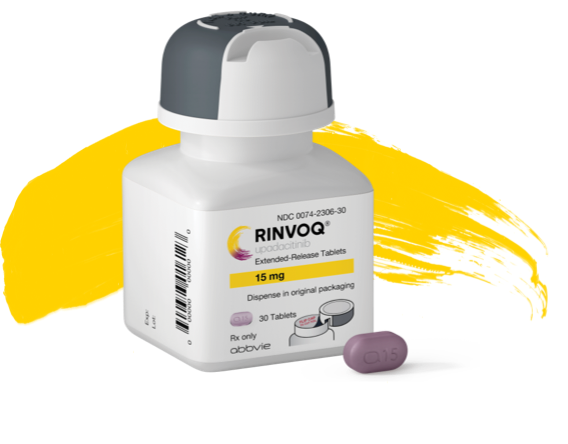One of the big differences with Rinvoq compared to other drugs is it is a one daily pill (as opposed to an injection or infusion like Humira or Remicade). As a patient I have mixed feelings about a daily pill (given you could easily miss one day as opposed to taking a Humira shot every two weeks). The one positive though is with Humira has to be refrigerator which can become dangerous if there is a power failure or outage and don't have a backup generator to keep the medicine cold. Rinvoq is not approved to be taken with another biologic therapy or other immunosuppressant.
The FDA just last year approved for Skyrizki which I covered on my blog last June. This article here does a great job of showing the drug development pipeline for Crohn's disease. What is interesting is almost every drug that was approved before 2019 was approved for both ulcerative colitis and Crohn's disease. This would make sense given they are pretty similar diseases. Remicade was approved for Crohn's disease in 2003 and then approved for ulcerative colitis in 2006. The biggest delay was Humira which was approved for Crohn's in 2007 but not until 2012 for ulcerative colitis. A five year timeline is a long time for people who are truly suffering to wait. Personally I am more of a fan if the drug was approved for either Crohn's or ulcerative colitis for it to be tried by patients who suffer from both (given some top notch GI's speculated I had signs of ulcerative colitis) and would allow for much for flexibility. If you look at the history of Rinvoq being approved it was first approved for rheumatoid arthritis in August 2019, psoriatic arthritis in December 2021, and ulcerative colitis in March 2022. I think what this would say to the average patient is if an autoimmune drug is approved for one diseases there is a decent chance it may be approved for another disease.
One current issue is access to the drug. The list price for Rinvoq is $6,125/month, however AbbVie the drug maker has co-pay assistance cards that can bring the cost down to $5/month (usually there are financial qualifications for this). As a GI online tried to prescribe the drug on May 23, 2023 (only 5 days after the FDA approved the drug and Blue Cross Blue Shield denied the coverage. There are people who have stories online of their insurance company not approving it or the cost being extremely high. The issue is further worsened by the fact that when individuals switch health insurance plans by either selecting a different health insurance plan, switching employers, or switching health insurance plans through their spouse they are denied access which is a real shame for people who just want to feel better!
I am glad to see the FDA approved Rinvoq as this will give Crohn's patients another drug to try if they have failed a biologic drug. I am also enthusiastic to see the future development of drugs for inflammatory bowel disease and what the next three to four years look like. Although, there are eight drugs currently approved for Crohn's disease by 2026 it appears there may even be more options than are currently available. Also hopefully this will reduce the need for patients to make frequent visits to their doctor (and potentially keep patients out of the hospital) if they are able to maintain remission for long periods of time. The main question though is will patients have access to this drug and more importantly be able to afford it. I am grateful that I live in a time period where there are so many options available if I ever have a severe flare up and need to try a different drug. It really probably is the best time if ever to have Crohn's or inflammatory bowel disease.

No comments:
Post a Comment